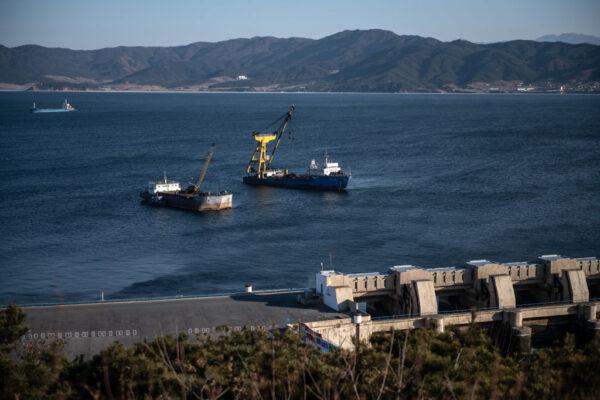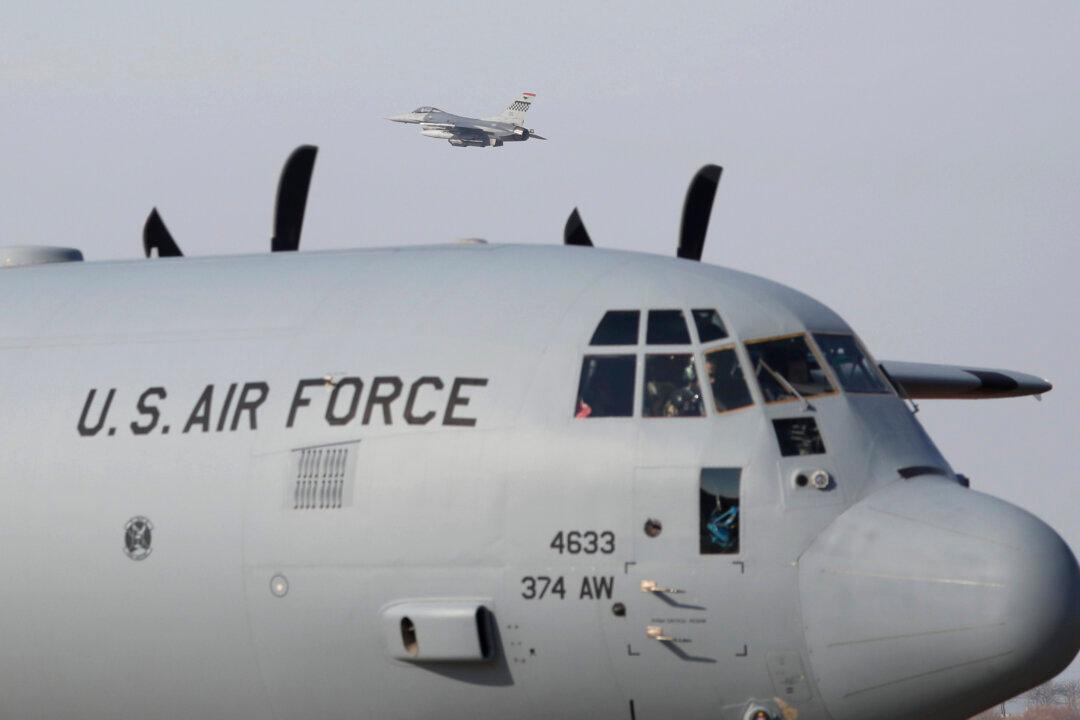A Canadian military aircraft was deployed to Japan on April 6 to assist in countering North Korea’s illicit maritime activities that are banned under the United Nations Security Council (UNSC) sanctions.
Canada’s defense ministry said the aircraft will monitor for “suspected maritime sanctions evasion activities, in particular ship-to-ship transfers of fuel and other commodities banned by the UNSC” for six weeks.
The CP-140 Aurora aircraft consists of 40 personnel. It is a long-range patrol aircraft with a range of 4,598 miles and is equipped with advanced sensors, according to the ministry.
Canadia also deployed the Halifax-class frigate HMCS Montreal and the CH-148 cyclone helicopter to support the monitoring mission and the country’s ongoing naval forward presence operation in the Indo-Pacific.
“Together, we are promoting a free and open Indo-Pacific and protecting the international rules that keep us all safe,” Anand said while referring to Japan as “one of Canada’s most important defense partners” in the region.
The council said that U.N. member states shall “seize, inspect, and freeze (impound) any vessel” in their ports and territorial waters if they have “reasonable grounds” to believe that the vessel was involved in illicit activity prohibited under the U.N. resolution.
North Korea Evades Sanctions With China’s Help
According to a 2020 UNSC report, North Korea began “a substantial sand-export operation” to China in May 2019, “with over 100 illicit shipments of sand” originating in North Korea. These shipments involved 1 million tons of sand and were worth at least $22 million.North Korea’s coal export also increased in 2019 despite the international ban, with 3.7 million tons of coal exported between January and August 2019, estimated to be worth $370 million, the report said.
The U.N. stated that at least 2.8 million tons of coal were transferred from North Korea to China’s local barges via ship-to-ship transfers.

“A large fleet of North Korean cargo ships continues to deliver coal to China in contravention of U.N. Security Council (UNSC) resolutions, in what appears to be a large-scale, coordinated effort to evade sanctions imposed on the country over its nuclear weapons and ballistic missile programs,” the report concludes.
According to the report, North Korean vessels would load coal and other resources—likely sanctioned commodities—before sailing to Chinese waters around the Zhoushan Islands, an archipelago part of coastal China’s Zhejiang Province. Those shipments were likely meant for Chinese shipping terminals, the report said.
Zhoushan is one of China’s naval bases. It houses the East Sea Fleet, with destroyers, frigates, and corvettes stationed there. The islands are also home to facilities operated by the China Coast Guard, the China Maritime Safety Administration, and the Zhoushan Port Authority, according to the report.
Despite such a heavy military presence, the think tank found that based on satellite images, North Korean ships weren’t stopped or detained—even when the ships were transmitting fraudulent AIS signals to disguise themselves.





